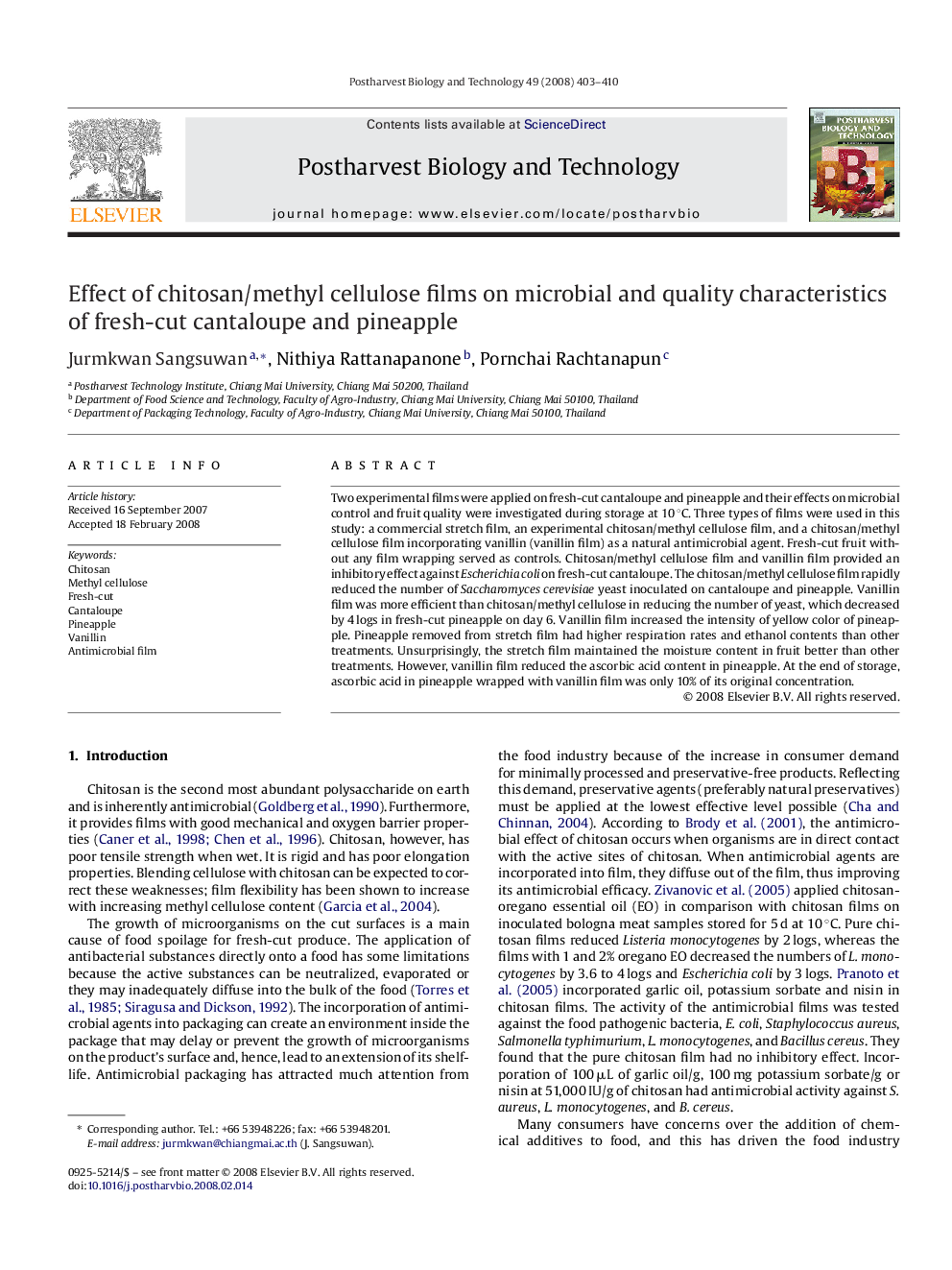| Article ID | Journal | Published Year | Pages | File Type |
|---|---|---|---|---|
| 4519419 | Postharvest Biology and Technology | 2008 | 8 Pages |
Two experimental films were applied on fresh-cut cantaloupe and pineapple and their effects on microbial control and fruit quality were investigated during storage at 10 °C. Three types of films were used in this study: a commercial stretch film, an experimental chitosan/methyl cellulose film, and a chitosan/methyl cellulose film incorporating vanillin (vanillin film) as a natural antimicrobial agent. Fresh-cut fruit without any film wrapping served as controls. Chitosan/methyl cellulose film and vanillin film provided an inhibitory effect against Escherichia coli on fresh-cut cantaloupe. The chitosan/methyl cellulose film rapidly reduced the number of Saccharomyces cerevisiae yeast inoculated on cantaloupe and pineapple. Vanillin film was more efficient than chitosan/methyl cellulose in reducing the number of yeast, which decreased by 4 logs in fresh-cut pineapple on day 6. Vanillin film increased the intensity of yellow color of pineapple. Pineapple removed from stretch film had higher respiration rates and ethanol contents than other treatments. Unsurprisingly, the stretch film maintained the moisture content in fruit better than other treatments. However, vanillin film reduced the ascorbic acid content in pineapple. At the end of storage, ascorbic acid in pineapple wrapped with vanillin film was only 10% of its original concentration.
